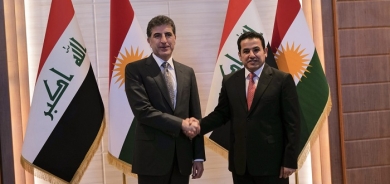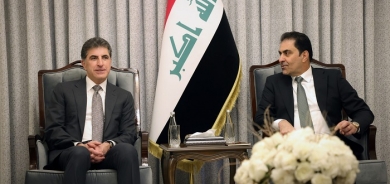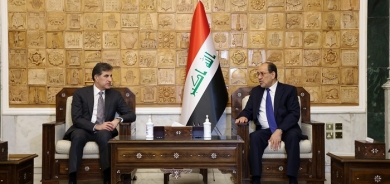Gulan Media Exclusive: Ukrainian Counterattack Defies Hollywood Movie Expectations, reveals Professor David Marples

Gulan Media recently conducted an exclusive interview with Professor David Marples, an esteemed scholar and authority on Russian and Eastern European history at the University of Alberta. With a prolific career spanning 16 books and over 100 papers, Professor Marples' insights shed light on the ongoing Russian-Ukrainian war and various other critical topics, including the normalization of relations between Iran and Saudi Arabia. This in-depth conversation provides a comprehensive analysis of key developments and offers a fresh perspective on these pressing global issues.
Gulan Media: In your expert opinion, do you find the increasing cooperation between Russia and Iran alarming, particularly in light of the fact that Iran has now established drone manufacturing facilities within Russian territory?
Professor David Marples: Yes. I think Russia is running out of allies who support its invasion of Ukraine and is now relying on those that can provide weapons such as Iran and North Korea.
Gulan Media: What are your thoughts on the recent development of Saudi Arabia and Iran re-establishing diplomatic ties? Saudi Arabia has agreed to allow Iran to reopen its consulate in Saudi Arabia, and this agreement was brokered by China. Should the United States be concerned about the potential loss of its influence in the region?
Professor David Marples: United States has always been more lax in terms of democratic standards with Saudi Arabia than with other countries. Clearly now, China sees some opportunities to intervene, but it is also advancing itsself as a "peacemaking" nation--for example, it has proposed a peace agreement to stop the Russian war in Ukraine, and now brings together two traditional foes.
Gulan Media: Why has the United States and NATO consistently provided financial support to Ukraine for weapons, ammunition, and air defense systems, but have not exerted substantial efforts in finding a comprehensive solution to end the ongoing war?
Professor David Marples: I think the reason is that there is not much room for compromise as long as Russian forces remain in Ukrainian territory. The US and NATO perceive the war as one for Ukraine's survival. Putin has given as a starting point for negotiations the acceptance of Russian control of Donetsk, Luhansk, Zaporizhzhia, and Kherson. It has no legitimate claims to any of these regions unless one accepts that we must go back to the period of the Russian Empire and Imperialism. Russia recognized Ukrainian borders on several occasions: 1990, 1997, 2004, etc. It cannot set new borders in 2023.
Gulan Media: What are your thoughts on certain countries rebelling against and disregarding sanctions imposed on Russia? Do you believe their actions stem from a fear of being targeted next or are they expressing their discontent with Western dominance and influence over global affairs?
Professor David Marples: It's a difficult question to answer because all countries are different. Hungary, for example, has maintained cordial relations with Putin and resented criticism for its attacks on "liberalism." Turkey and Israel have carefully maintained neutrality. But there is surprising unity overall in both NATO and the EU, more than I expected actually, and particularly in the states bordering Russia or in the 'neighborhood'.
Gulan Media: We are witnessing Ukraine's counteroffensive strategy, and it appears that Russian soldiers are managing to withstand it. If Ukraine's counteroffensive proves unsuccessful, could this potentially have catastrophic consequences for them? Specifically, would it allow the Russian military to regroup and launch their own counteroffensive with significant advantages?
Professor David Marples: With respect, I think the question is premature. Ukraine has always maintained that this is not some sort of Hollywood war. The counteroffensive has started slowly because the Russians are in trenches that are difficult to penetrate. This is an initial stage, and overall the Ukrainian army is better organized and better supplied. Russia probably cannot make much progress without wider conscription and there is a discernible rift between the regular army and the private military companies, as was evident in the fighting around Bakhmut. I am more concerned about the longer term situation of how the lands retaken can be sustained, and whether the two neighbours can ever cooperate again. Putin's war has been one of destruction. It will be difficult for Ukraine to revive.
Gulan Media: What is your perspective on the United States potentially neglecting to address its challenges in the Middle East, and do you believe this creates an opportunity for China to assume a greater role and fill the void, as evidenced by its involvement in brokering peace deals in the region?
Professor David Marples: Yes, it could happen but China is a trading nation first and foremost and one with some significant internal problems (with its Muslim population, Hong Kong, etc). The United States did abandon its allies in Afghanistan and Syria, something initiated under the Trump presidency and now it is devoting considerable resources to helping Ukraine. I think one answer is for closer cooperation with China rather than regarding it as a hostile rival. It is not a new idea and the Nixon-Kissinger administration pursued a similar line in 1972 in the middle of the Cold War. There is a potential because Russia's attack on Ukraine is not in China's economic interests. Some cooperation between USA and China would greatly weaken Putin, and he is the figure responsible for the current war.















